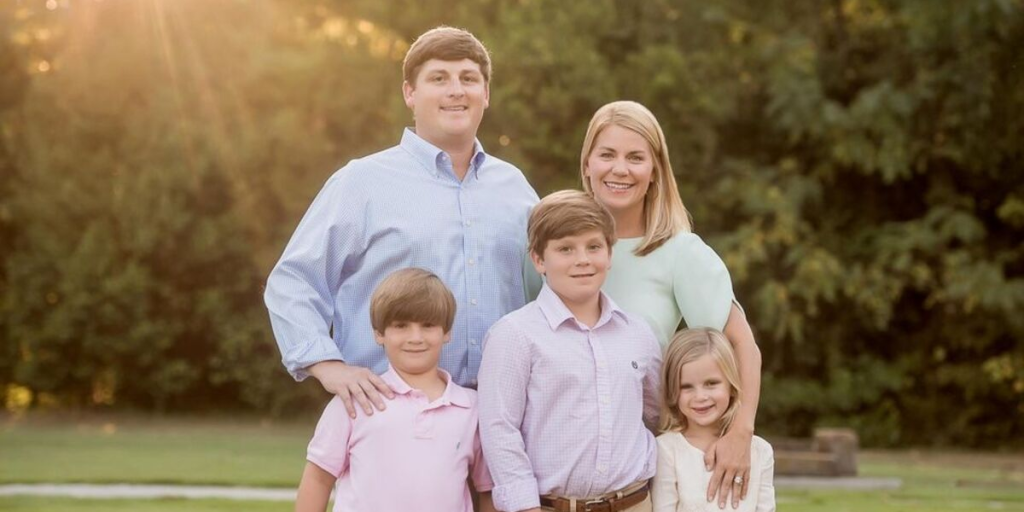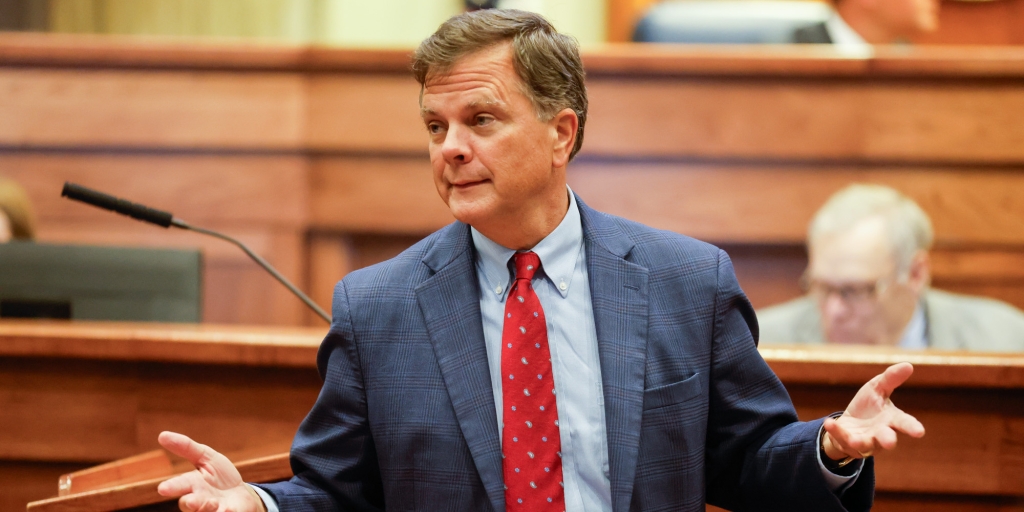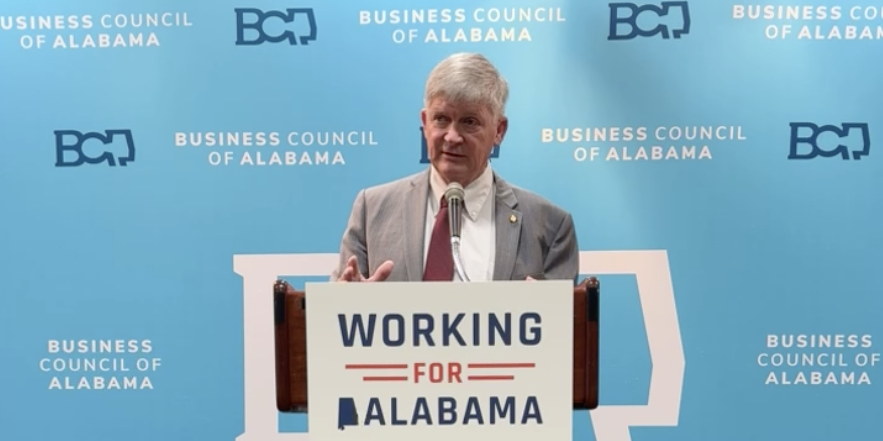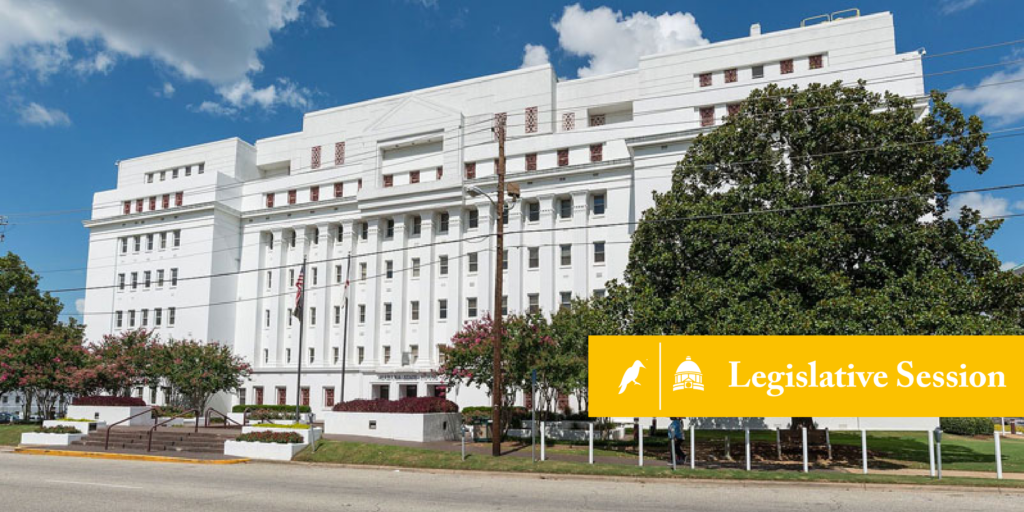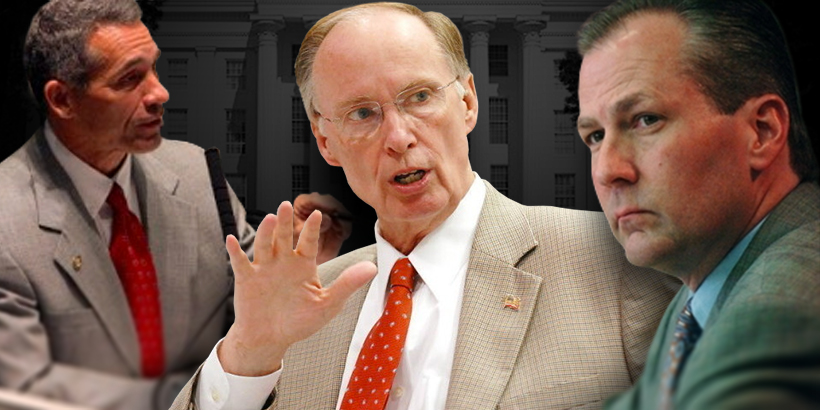
MONTGOMERY, Ala. — The Alabama Legislature is constitutionally required to pass a balanced budget each year. This Spring, however, lawmakers passed an ill-fated budget that was immediately vetoed by Governor Robert Bentley (R).
Before closing the 2015 Regular Session Thursday evening, the legislature approved a General Fund budget that cut $200 million from Medicaid, corrections, mental health and the other agencies.
“I know it’s not something that any of us wanted to pass,” said House General Fund Budget Chairman Steve Clouse (R-Ozark).
The cuts were so unpopular, in fact, that Senate General Fund Budget Chairman Arthur Orr (R-Decatur) voted against his own budget. Orr intimated Thursday that a push for tax increases is likely when the Legislature convenes for an inevitable Special Session later this Summer.
“It took time for an agreement that there really is a significant problem and that just passing a cut budget is not the best answer to the problem,” Orr said, calling the process “frustrating.”
The first four years of complete Republican control in Montgomery were marked by an unusual level of cohesion between the House and the Senate. The two bodies cranked through each other’s legislative agendas year after year with very minimal tension, even occasionally coming together to override Gov. Bentley’s veto on major issues like the Accountability Act, the GOP’s landmark school choice bill.
The tone was different from the very beginning in 2015.
Gov. Bentley, safely elected to a second term, sought to impose his will on the legislature by rolling out a package of tax increase bills and playing hardball with any legislators who publicly opposed him. Competing solutions to the budget shortfall emerged in the House and Senate, some involving taxes, others involving various forms of gambling expansions, and a handful involving significant budgeting reforms.
The tensions were running so high by the end of the session that Speaker Mike Hubbard (R-Auburn) made a rare appearance on the House floor to rebuke and cast blame on is Senate colleagues for “clocking out” on the citizens of Alabama, an accusation the upper chamber likely won’t forget between now and an expected Special Session in August.
The challenge for anyone trying to predict how things will play out is that every viable solution appears to face insurmountable opposition. The task, then, for legislative leaders is to build consensus around the best way to approach the budget shortfall, whether it be with spending cuts, structural reforms, tax increases, gambling, or some combination thereof.
A large bloc of conservative senators and a growing group of House members have already publicly vowed to stand in the way of any proposed tax increase. Considering they will all have to face voters again in a few short years, it is hard to imagine them changing directions.
“I don’t see the sentiment of this body changing,” Senate President Pro Tem Del Marsh (R-Anniston) said of his members’ opposition to tax increases.
It also seems unlikely either of the competing gambling plans will be able to cobble together enough support to pass. There still remains a large group of staunchly anti-gambling conservatives who will not support either plan. The remaining members are split over the best approach. Some support the Poarch Creek Indians’ offer of $250 million in return for exclusive gaming rights, while others view that as the creation of an unnecessary monopoly. Another small group supports expanding gaming in the state to include Las Vegas-style casinos. The only crossover between those in favor of the Poarch Creek deal and those backing a larger gaming expansion is support for a state-sponsored lottery, which still faces widespread opposition among Republicans.
The only plan that seemed to actually gain momentum rather than lose it during the Regular Session was a push to overhaul the dysfunctional way the state structures its budgets. Alabama is one of only three states in the country that has separate education and general fund budgets. The state also earmarks 91 percent of its tax revenue, making it impossible for elected leaders to set spending priorities in lean years.
However, in spite of the growing calls from conservatives who argue the Education Budget’s surplus proves the state has enough money to meet its obligations, some longtime members of the legislature are reluctant to make such dramatic reforms.
So what is the most likely outcome of the impending Special Session?
Sin taxes on cigarettes and soft drinks are the only tax increases that garner any noticeable support among Republicans. Some have pushed behind closed doors to pass such taxes and “be done with it.” However, other members worry they would be setting themselves up for electoral defeat by supporting hundreds of millions of dollars in tax hikes, no matter which taxes they are.
“It’s not like they clarify in campaign ads which taxes you raised,” said one Republican House member, who spoke on condition of anonymity to not further increase tensions among his colleagues. “The ads would just say ‘voted to raise taxes by $250 million,’ and they would be true. There’s no doubt in my mind that would get a bunch of us beat.”
There is a growing sense that at least some un-earmarking will garner enough support to pass. Most notably, a proposal to funnel some of the state’s use tax revenue from the Education Budget to the General Fund is getting cautiously favorable nods from both legislative leaders and rank and file members. And Senators say the Governor assured them if they find a way to patch the General Fund this year, he’ll throw his weight behind a push to combine the budgets in 2016, something he has been supportive of in years past.
The divisiveness that marked the Regular Session is unlikely to dissipate over the summer as leaders works toward a compromise. The only thing we know for sure is that they are constitutionally mandated to pass a balanced budget. What exactly it will look like is still anyone’s guess.
Like this article? Hate it? Follow me and let me know how you feel on Twitter!
— Elizabeth BeShears (@LizEBeesh) January 21, 2015





